“Education is the most powerful weapon you can use to change the world.”
Nelson Mandela
“Education is an indispensable element for achieving sustainable development.”[1] People around the world recognize that current economic development trends are not sustainable and that public awareness, education, and training are key to moving society toward sustainability. Education for sustainable development (ESD) refers to the use of education as a tool to achieve sustainability. In fact, it calls for giving people knowledge and skills for lifelong to help them find new solutions to environmental, economic, and social issues.
From the time sustainable development was first endorsed at the UN General Assembly in 1987, the parallel concept of education to support sustainable development has also been explored. From 1987 to 1992, the concept of sustainable development matured as committees discussed, negotiated, and wrote the 40 chapters of Agenda 21 from the Earth Summit (Rio de Janeiro, 1992). Initial thoughts concerning ESD were captured in Chapter 36 of Agenda 21, "Promoting Education, Public Awareness, and Training."
This chapter identified four major thrusts to begin the work of ESD with:
(1) to improve access to quality basic education,
(2) to reorient existing education to address sustainable development,
(3) to develop public understanding and awareness, and
(4) to provide training programmes for all sectors of private and civil society.
Those four thrusts became major components for the United Nations Decade of Education for Sustainable Development.[2]
ESD is about more than a knowledge base related to environment, economy, and society. It also addresses learning skills, perspectives, and values that guide and motivate people to seek sustainable livelihoods, participate in a democratic society, and live in a sustainable manner. ESD also involves studying local and, when appropriate, global issues. Therefore, these five (i.e., knowledge, skills, perspectives, values, and issues) must all be addressed in a formal curriculum that has been reoriented to address sustainability.
While Agenda 21 clearly identifies many of the critical issues that governments around the world agreed to address, additional issues that are important to enhancing the understanding of sustainability (e.g., globalization) have continued to emerge since the Rio de Janeiro conference. These additional issues, not included in Agenda 21, are part of international discussions of sustainability and include, but are not limited to, topics such as war and militarism, governance, discrimination and nationalism, renewable energy sources, multinational corporations, refugees, nuclear disarmament, human rights, and media influencing rapid change of worldviews. These issues are pertinent to reorienting education to address sustainability and should be included when relevant. Including local issues will foster innovative solutions and develop the political will to resolve them.
The ability to consider an issue from the view of different stakeholders is essential to ESD. Considering an issue from another viewpoint besides your own leads to intra-national and international understanding. This understanding is essential for creating the mood of cooperation that will underpin sustainable development.
To be successful, ESD must go beyond teaching about these global issues. ESD must give people practical skills that will enable them to continue learning after they leave school, to have a sustainable livelihood, and to live sustainable lives.
Values are also an integral part of ESD. In some cultures, values are taught explicitly in the schools. In other cultures, however, even if values are not taught explicitly, they are modeled, explained, analyzed, or discussed. In both situations, understanding values is an essential part of understanding your own worldview and other people's viewpoints. Understanding your own values, the values of the society you live in, and the values of others around the world should be a central part of education for a sustainable future.
In the context of the topic of this post, I’d like to mention the Earth Charter Initiative. The Earth Charter was created by the independent Earth Charter Commission, which was convened as a follow-up to the 1992 Earth Summit in order to produce a global consensus statement of values and principles for a sustainable future. The document was developed over nearly a decade through an extensive process of international consultation, to which over five thousand people contributed. The Charter has been formally endorsed by thousands of organizations, including UNESCO and the IUCN (World Conservation Union). (For more information, please visit www.EarthCharter.org.)
The Earth Charter is a synthesis of values, principles, and aspirations that are shared by a growing number of women, men, and organizations around the world. Drafting the Earth Charter was part of the unfinished business of the Earth Summit. The Earth Charter was written with extensive international consultations conducted over many years. Currently, the Earth Charter is being disseminated to individuals and organizations in all sectors of society throughout the world and it says in part:
"We urgently need a shared vision of basic values to provide an ethical foundation for the emerging world community. Therefore, together in hope we affirm the following interdependent principles for a sustainable way of life as a common standard by which the conduct of all individuals, organizations, businesses, governments, and transnational institutions is to be guided and assessed:
- Respect and care for the community of life
- Ecological Integrity
- Social and Economic Justice
- Democracy, Nonviolence, and Peace”
To me, that concept is very much at the heart of Pope Francis’s message in the Encyclical Letter (Laudato Si')[3] which concludes well with this part "The analysis showed the need for a change of course ... we must escape the spiral of self-destruction in which we are sinking" (n.163). It is not a reform, but, citing the Earth Charter, to seek "a new beginning" (n.207). The interdependence of all with all leads us to believe "in one world with a common project" (n.164).
Since reality has many aspects, all closely related, Pope Francis proposes an "integral ecology" that goes beyond the environmental ecology to which we are accustomed (n.137). The idea of ‘integral ecology’ covers the areas of the environmental, economic, social, cultural and everyday life (n.147-148). Never forget the poor who also testify to the living human and social ecology ties of belonging and solidarity with each other (n.149).
Pope Francis refers to education in the sense of creating "ecological citizenship" (n.211) and a new lifestyle, based on caring, compassion, shared sobriety, the alliance between humanity and the environment, since both are umbilically linked, and the co-responsibility for everything that exists and lives and our common destiny (nn.203-208).
I would like to end with the final words of the Earth Charter in which the Pope quotes himself (n.207): "Let ours be a time remembered for the awakening of a new reverence for life, the firm resolve to achieve sustainability, the quickening of the struggle for justice and peace, and the joyful celebration of life.¨
To some extent CASI contributes to the appeal of the Pope: “The urgent challenge to protect our common home includes a concern to bring the whole human family together to seek a sustainable and integral development, for we know that things can change.” (n.13). In CASI we involve stakeholders in discussions about sustainable innovations and Grand Challenge 5. In CASI citizens have for example developed a vision on the research and decisions regarding education for sustainable future. Public engagement in research, education and decisions, is of paramount importance to our joined efforts, aimed at to tackle root causes and do more to integrate the economic, social and environmental dimensions of sustainable development.
[1] United Nations. 2004. General Assembly Resolution 58/219. New York: United Nations.
[2] UNESCO. 2005. Education for Sustainable Development. ESD Information Briefs.
[3] ENCYCLICAL LETTER LAUDATO SI’ OF THE HOLY FATHER FRANCIS, ON CARE FOR OUR COMMON HOME, Dated May 24, 2015, Published 06/25/2015.
Relevant themes:
Public participation, Sustainable innovation
Relevant tags: Social innovation, Sustainability, Sustainable lifestyles


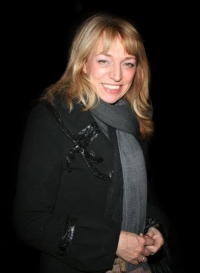


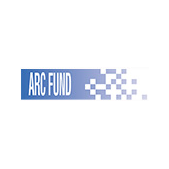



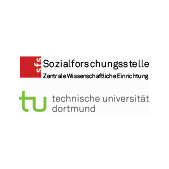
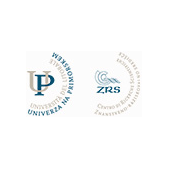
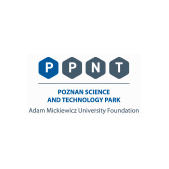



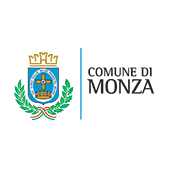
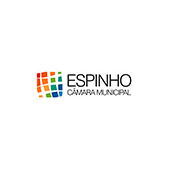



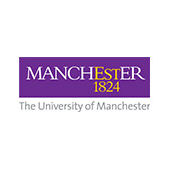





This paper touches upon the importance of education in the context of sustainable development. It would be also very interesting (and challenging) to further elaborate on the relationships between ESD and the learning organizations. According to Peter Senge, "it is organizations where people continually expand their capacity to create the results they truly desire, where new and expansive patterns of thinking are nurtured, where collective aspiration is set free, and where people are continually learning to see the whole together".
This would provide valuable viewpoint on the role of people and organizations in ESD.